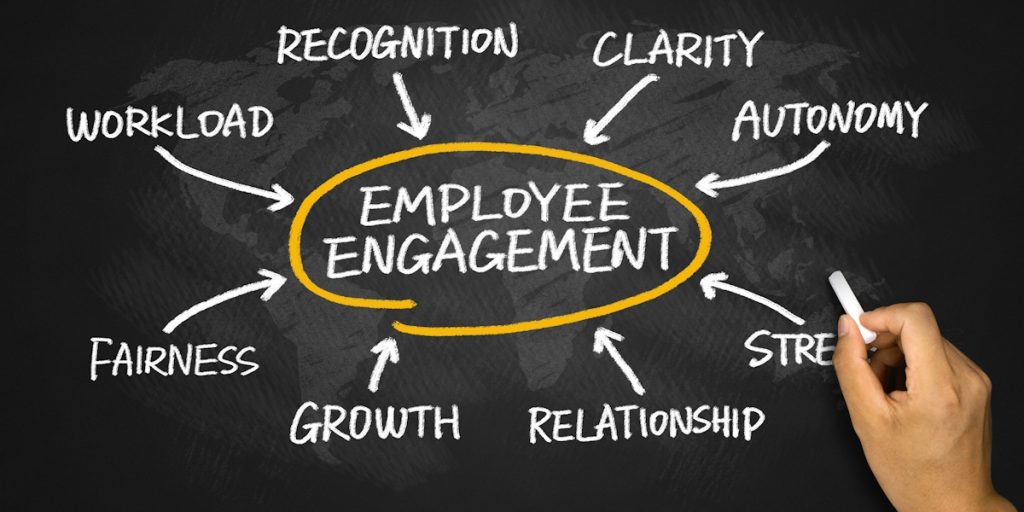In the contemporary workplace, job satisfaction has become a multifaceted concept that extends beyond the boundaries of a competitive salary. Employees today seek recognition, purpose, and a sense of belonging. This is where non-monetary incentives come into play, significantly enhancing workplace satisfaction and creating satisfied employees. But what exactly does defining job satisfaction mean in this context, and how do non-monetary rewards for employees contribute to this definition? Let’s dive deeper into this topic, exploring the importance of non-financial rewards to motivate employees and their role in maintaining a healthy work-life balance.
Understanding Job Satisfaction
Before delving into non-monetary incentives, it’s essential to understand what we mean by defining job satisfaction. Job satisfaction refers to the level of contentment employees feel about their work, which encompasses various aspects such as their role, work environment, relationships with colleagues, and growth opportunities. It’s a comprehensive concept, indicating that satisfaction at work isn’t solely derived from financial compensation.
Why Non-Monetary Incentives for Employee Satisfaction?
Non-monetary incentives refer to benefits provided to employees that do not involve direct financial rewards. These incentives are diverse, encompassing recognition programs, professional development opportunities, flexible work schedules, a positive work environment, and more. Their core objective is to satisfy intrinsic motivators – the psychological needs that drive individuals to perform and excel.
Types of Non-Monetary Incentives
Recognition and Praise
- Public acknowledgment of achievements
- Personalized thank-you notes
- Employee of the Month awards
Career Development Opportunities
- Training and professional development programs
- Mentorship and coaching
- Opportunities for career advancement
Work-Life Balance
- Flexible working hours
- Remote working options
- Paid time off and sabbaticals
Positive Workplace Culture
- Inclusive and supportive work environment
- Team-building activities
- Wellness programs and mental health support
Autonomy and Empowerment
- Increased decision-making authority
- Opportunities for creative input
- Ownership of projects
Psychological Underpinnings of Non-Monetary Incentives
Non-monetary rewards tap into several psychological theories of motivation. Understanding these theories helps explain why such incentives can significantly enhance employee satisfaction.
Maslow’s Hierarchy of Needs
According to Maslow’s Hierarchy of Needs, once basic financial needs are met, individuals seek fulfillment of higher-level psychological and self-fulfillment needs. Non-monetary incentives often cater to these higher-level needs:
- Esteem Needs: Recognition and praise fulfill employees’ desire for respect and appreciation.
- Self-Actualization: Career development opportunities allow employees to achieve their full potential and personal growth.
Herzberg’s Two-Factor Theory
Herzberg’s Two-Factor Theory distinguishes between hygiene factors and motivators. Hygiene factors (e.g., salary, job security) prevent dissatisfaction but do not necessarily motivate. Motivators, such as recognition and career development, directly enhance job satisfaction and drive performance.
Self-Determination Theory (SDT)
SDT posits that intrinsic motivation is driven by three basic psychological needs: autonomy, competence, and relatedness. Non-monetary incentives often fulfill these needs:
- Autonomy: Flexible working conditions and empowerment initiatives provide employees with control over their work.
- Competence: Professional development opportunities help employees feel capable and skilled.
- Relatedness: A positive workplace culture fosters a sense of belonging and connection.
The Impact on Employee Satisfaction
The implementation of non-monetary incentives can lead to several positive outcomes for employee satisfaction:
Enhanced Job Satisfaction
Employees who feel recognized and valued are more likely to derive satisfaction from their work. Additionally, recognition programs and praise can create a positive feedback loop, reinforcing desired behaviors and boosting morale.
Improved Employee Engagement
Engaged employees are emotionally invested in their work and the organization’s goals. Moreover, non-monetary incentives, such as career development opportunities and a supportive work environment, can enhance this engagement, leading to higher productivity and reduced turnover.
Increased Loyalty and Retention
Employees who perceive that their employer cares about their well-being and career growth are more likely to remain with the organization. Furthermore, non-monetary incentives can foster a sense of loyalty, reducing the costs associated with high employee turnover.
Fostering Innovation and Creativity
By providing autonomy and encouraging creative input, non-monetary incentives can spur innovation. Additionally, employees feel empowered to experiment and propose new ideas, driving the organization’s growth and adaptability.
Positive Organizational Culture
A culture that prioritizes non-monetary incentives sets a precedent for a supportive and inclusive work environment. Moreover, this culture attracts talent, enhances teamwork, and promotes a sense of community within the organization.
Implementing Non-Monetary Incentives
To effectively implement non-monetary incentives, organizations should consider the following strategies:
Understand Employee Preferences
Conduct surveys or focus groups to identify what types of non-monetary incentives are most valued by employees. Tailoring incentives to meet these preferences ensures higher effectiveness.
Integrate with Organizational Goals
Align non-monetary incentives with the organization’s mission and values. This alignment ensures consistency and reinforces the desired organizational culture.
Communicate Clearly
Clearly communicate the availability and criteria for non-monetary incentives. Transparency helps manage expectations and ensures employees understand the benefits available to them.
Evaluate and Adapt
Regularly assess the impact of non-monetary incentives on employee satisfaction. Gather feedback and make adjustments as necessary to ensure the incentives remain relevant and effective.
The Ripple Effect on Organizational Success
The impact of non-monetary rewards extends beyond individual satisfaction, influencing overall organizational success. Satisfied employees are more likely to exhibit higher productivity, lower turnover rates, and enhanced creativity. They become advocates for the company, contributing to a positive employer brand that attracts top talent. Furthermore, by fostering a culture of recognition and empowerment, organizations can nurture a pool of loyal and committed employees, ready to go the extra mile.
Conclusion
The impact of non-monetary rewards on employee satisfaction cannot be understated. In an era where job satisfaction encompasses much more than financial compensation, these incentives play a crucial role in motivating, engaging, and retaining employees. By understanding and implementing various non-financial rewards, organizations can create a more satisfied, motivated, and productive workforce, ultimately leading to greater success.
Moreover, in summary, non-monetary incentives are a powerful tool in enhancing job satisfaction and workplace satisfaction, leading to satisfied employees and a thriving organization. As we move forward, prioritizing these incentives will be key to fostering a positive and engaging work environment where employees feel valued beyond their paychecks.
Would You Like a Free Consultation for Successful Strategy of B2B Partnerships?




